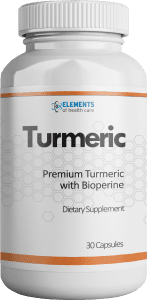Turmeric supplements are gaining popularity among health-focused people, but what is turmeric good for? Find out about its health benefits.
Turmeric is a perennial plant that has been used as a culinary and medicinal herb for thousands of years. In fact, it has been part of traditional Indian Ayurvedic medicine for at least 4,000 years.
“It’s one of the most powerful anti-inflammatories and a very powerful antioxidant,” says Melina Jampolis, M.D., a nutritional physician specialist. “It works on a molecular level to downregulate inflammatory genes. There’s no one thing that’s going to be the cure or preventative for everything, but turmeric is up there.”
What makes turmeric so beneficial is its contents of a phytochemical called curcumin. The following are five amazing health benefits you may experience from turmeric and curcumin.
 1. Alzheimer’s Protection
1. Alzheimer’s Protection
According to several studies, curcumin has positive effects when it comes to Alzheimer’s disease. It works by preventing the formation and encouraging the breakup of rogue proteins called beta-amyloid plaques that would otherwise affect cognition.
2. Arthritis Relief
Osteoarthritis causes pain and joint dysfunction, which most people treat with OTC medications like aspirin and ibuprofen. However, according to a variety of studies, curcumin may help reduce joint inflammation and pain without the gastrointestinal effects of NSAIDs.
3. Brain Boost
Curcumin has antioxidant and anti-inflammatory properties that can potentially help with brain health. For instance, it may help reduce the symptoms of neurodegenerative diseases like dementia, multiple sclerosis, and Parkinson’s disease.
4. Mood Enhancer
“Curcumin seems to benefit mood by increasing brain-derived neurotrophic factor [BDNF],” says Jampolis. BDNF is a protein that seems to be stimulated by curcumin and other plant-derived polyphenols. It works to keep neuronal cells healthy. “BDNF is associated with neuronal regeneration,” says Jampolis.
5. Inflammation Protection
Many studies suggest that chronic systemic inflammation and oxidative stress may play a key role in a host of serious diseases. However, because of its anti-inflammatory and antioxidant properties, curcumin may help protect against both inflammation and these chronic diseases.
Turmeric and Your Health
Dr. Jampolis explains how much turmeric you need to consume to experience certain benefits in a safe way:
- “If you’re talking about a therapeutic dose of curcumin, you’re looking at 500 to 1,000 milligrams a day. That’s about 2.5 teaspoons. [Even though it’s possible to consume this through culinary use], if you’re looking for a therapeutic benefit for arthritis or mood or Alzheimer’s prevention, I’d probably suggest adding a supplement.”
 Supplements typically include black pepper extract to increase curcumin’s bioavailability, or how efficiently your body absorbs and uses curcumin. If you’re looking for a supplement that can help you experience the benefits mentioned, consider taking Premium Turmeric from Elements of Health Care.
Supplements typically include black pepper extract to increase curcumin’s bioavailability, or how efficiently your body absorbs and uses curcumin. If you’re looking for a supplement that can help you experience the benefits mentioned, consider taking Premium Turmeric from Elements of Health Care.
It includes Bioperine, which increases its bioavailability. This supplement also aids in joint health, promotes healthy skin, supports memory and neural function, promotes heart health, promotes relief from exercise-induced muscle soreness, and supports organ function – especially the liver. Give your health the boost it needs and take Turmeric from Elements of Health Care.


 1. Alzheimer’s Protection
1. Alzheimer’s Protection